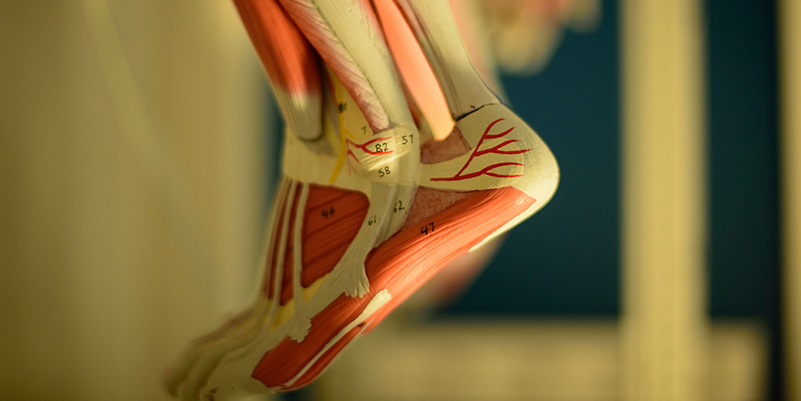
Chronic tendinopathy is a significant problem, affecting both active and less active populations. This can cause significant pain, limiting activity and cause difficulties both to occupational roles and sporting performance.
There are a number of different body parts commonly affected with chronic tendinopathy. These conditions include Achilles tendinopathy and patella tendinopathy, as well as pain around the side of the hip (often called “Greater Trochanteric Pain Syndrome” or “Trochanteric Bursitis”), the sole of the foot (plantar fasciitis), or the elbow (“Tennis elbow” and “Golfers elbow”.) These are common conditions, with a lifetime risk of plantar fasciitis of 10%, an incidence of 1-3/1000 people for either Achilles tendinopathy or greater trochanteric pain, and figures approaching 50% in some sports for patella tendinopathy.
There are many treatment options for patients with tendinopathy, including various forms of rehabilitation exercises, steroid injections, extra-corporeal shockwave therapy (ESWT), novel injection therapies such as high-volume injection (HVIGI) or injection of blood products including Autologous Blood Injections (ABI) or Platelet-Rich Plasma (PRP) injections. There is inconsistent evidence of benefits for treatments with many ongoing uncertainties. Research hosted through the National Centre for Sport and Exercise Medicine East Midlands seeks to improve this evidence and optimise treatments for these chronic, and often very limiting, conditions.
LEICeSter Tendon Extracorporeal Shockwave Studies (LEICSTES)
This study investigates the effectiveness of extra-corporeal shockwave therapy (ESWT) performed alongside a structured rehabilitation programme for patients with a wide range of different tendinopathy conditions. This is being conducted as a randomised controlled clinical trial to better understand any benefits of this treatment in NHS patients, who often have a long duration of symptoms before treatment.
Extra-corporeal shockwave therapy (ESWT) is a non-invasive treatment which uses high-energy sound waves generated outside the body and transmitted through the skin, to stimulate a healing effect in patients with chronic tendinopathy.
This study is run as a collaboration with the University Hospitals of Leicester NHS Trust, one of the largest hospital trusts in the UK, and has had all necessary site approvals and independent research ethics permissions needed. This project recruits NHS patients being treated at the Sports Medicine Department of Leicester Hospitals in, and to date this study has already recruited more than 400 patients and has generated several publications in high-order peer-reviewed journals sharing evidence from this study.
Biomechanical Associations and Efficacy of Injectable Therapy (BEFIT) study
This study investigates the role of a high-volume image-guided injection (HVIGI) in serving military personnel with either Achilles or Patella Tendinopathy. This treatment aims to strip away the neovascularity and disrupt the nerve ingrowth seen in chronic cases and has shown promising results in case series.
The study investigates the efficacy of HVIGI in a randomised control trial and will add high-level evidence to the management of chronic tendinopathy resistant to conservative treatment.
This project is a collaboration between Loughborough University and the Defence Medical Rehabilitation Centre (Headley Court). The Higher Education Funding Council for England (HEFCE) has supported the project through a catalyst fund.
Watch a video about this study.
Autologous Blood Injection (ABI) versus Dry-needling study
This study investigates the effect of the autologous blood injection (ABI) in patients with chronic plantar fasciitis. This treatment uses a small quantity of the patients own blood (about half- a teaspoon) alongside a needling procedure, performed under ultrasound visualisation of the damaged structure.
This project was conducted as a randomised trial to better understand the effects of the injection therapy and to guide further treatment. This study has successfully recruited 90 patients treated through the Sports Medicine Dept at the University Hospitals of Leicester NHS Trust and has now closed to recruitment with the results due shortly.
This page contains brief information of three of the ongoing clinical studies investigating the effectiveness of different treatments for patients with chronic tendinopathy. Other studies have investigated rehabilitation techniques, or the use of different devices, and other studies are at various stages of construction to explore these conditions further. Researchers interested in this area are welcome to contact Dr Patrick Wheeler who leads on this area at the NCSEM-EM.